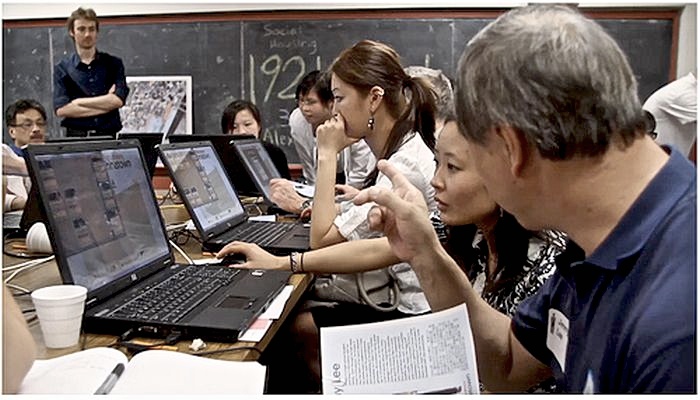
Participatory Chinatown
Video games, long associated with space invasions and fantasy role-playing, have recently emerged as useful tools for facilitating community interaction and education. Indeed, a new generation of video games have been developed over recent years which allow people to engage in a whole host of social issues from solving the middle-east peace process, to tackling climate change to preventing world famine. Gaming provides a fun and accessible platform for people to engage in real-life decision making and collaborate on issues they wouldn’t usually be consulted on.
Whilst games like Sim City have long allowed gamers to build their own cities (and egos) a new style has been developed which allows participants to engage with civic issues in their neighbourhoods like never before. Participatory Chinatown (developed by Engagement Game Lab, Metropolitan Area Planning Agency, the Asian Community Development Corporation and Muzzy Lane Software) allows residents of Boston’s Chinatown to take part in the area’s master planning process through playing in a virtual representation of their own neighbourhood.The game is played as either single-player online or on a multiplayer network through which residents assume the role of one of fifteen virtual characters who must complete an assigned everyday task; finding a house, job or place to relax. Importantly, the game encourages residents to take on the role of another member of the community, an unemployed father, working mother of two, high-school student, or recently arrived migrant each with a unique set of challenges to overcome. Success is achieved through collecting information and overcoming challenges. A secondary level of the game then takes participants through various proposed redevelopment projects in the neighbourhood, where players win points for leaving comments.
The game is played at a local community centre which also acts as a community space for educational and intergenerational exchange. Internships are offered in order for local young people to develop skills and knowledge in digital media, whilst they are also involved in community meetings as interpreters and teachers for elderly members of the community.
The project invites residents to engage with and make comments on the future of their neighbourhood from their own and others perspectives; all comments are then shared with decision-makers in the planning process. Through the project, the community is able to forge an empathetic, measured and collaborative vision for the local surroundings. Games have been shown to thus provide the local community with an innovative tool for engaging with the planning process, which in the long-term can contribute to a whole eco-system of participatory tools for community engagement with local places.
Information and pictures sourced from //participatorychinatown.org | www.goodspeedupdate.com| www.americancity.org | All rights reserved.
